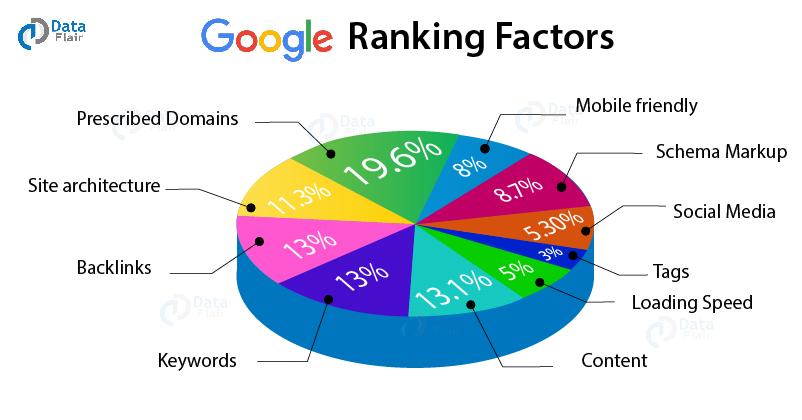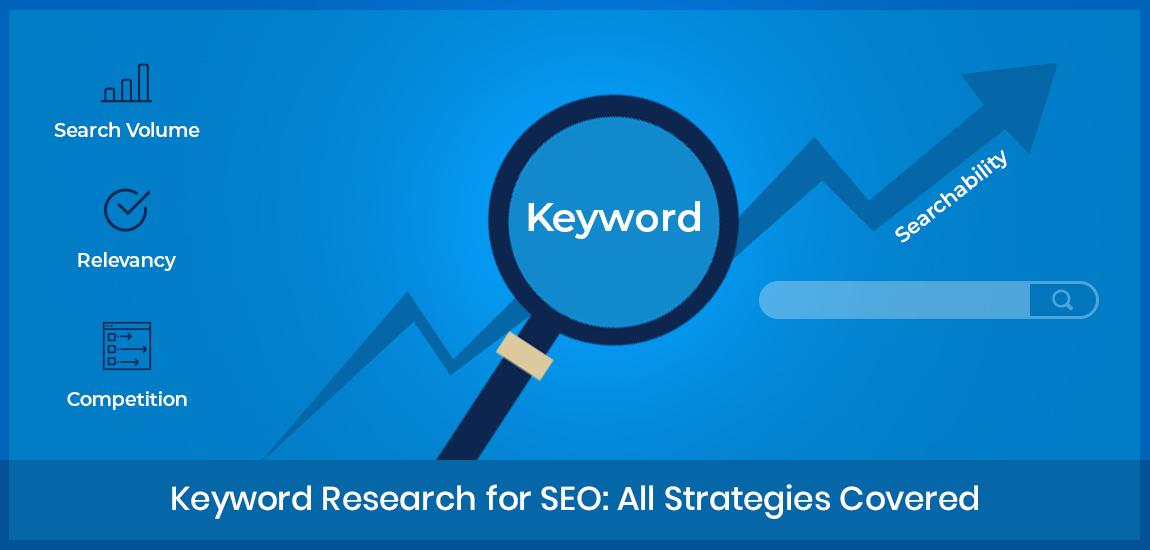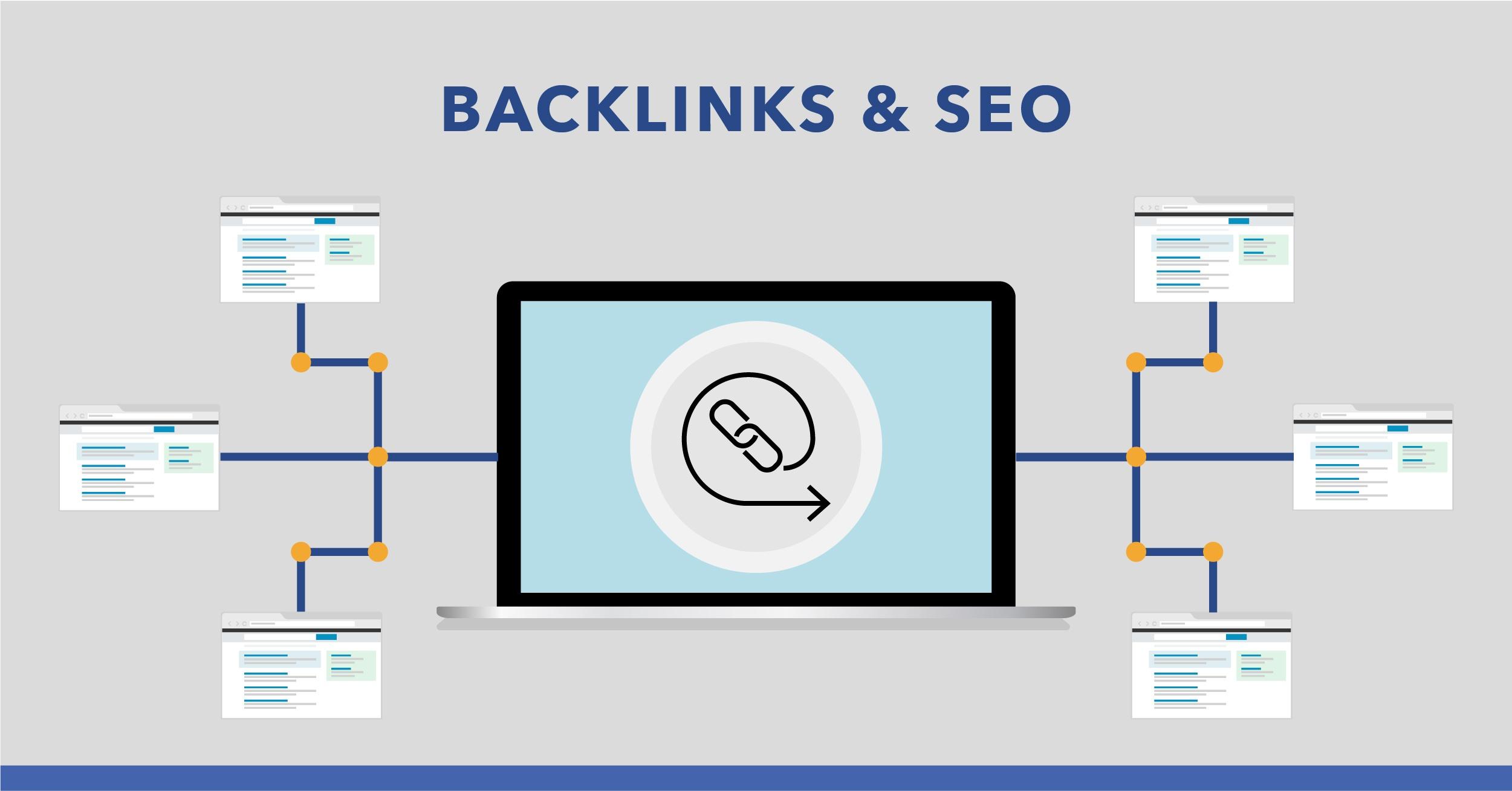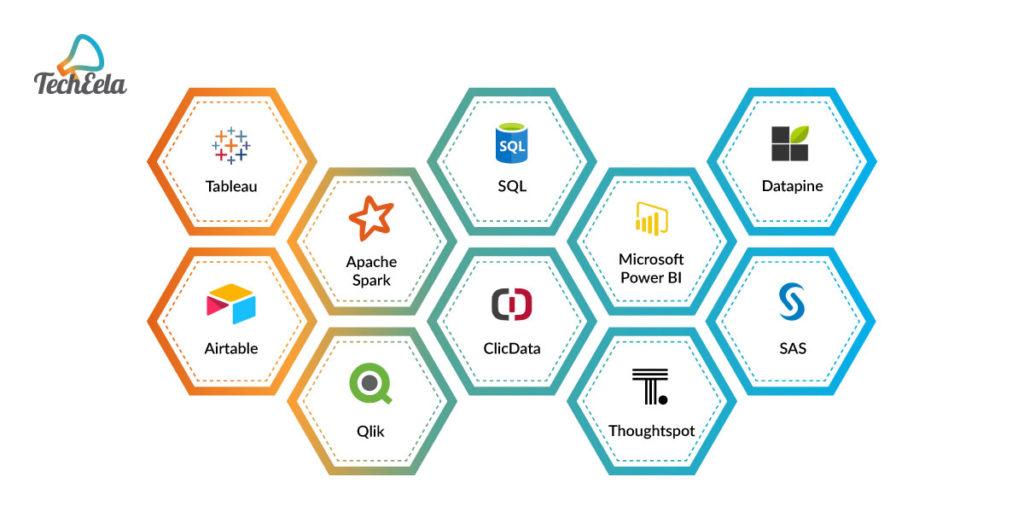are you tired of watching your website languish on the second or third page of Google search results? You’re not alone! In today’s digital landscape, ranking higher on Google isn’t just a nice-to-have; it’s essential for driving traffic, attracting new customers, and growing your business. But don’t worry—improving your rank is not as daunting as it may seem. With a few strategic tweaks and a dash of no-how,you can boost your visibility and climb those search engine rankings. In this article,we’ll walk you through proven strategies to elevate your website’s performance in search results.Whether you’re a seasoned marketer or just starting out, these tips will empower you to take control of your online presence and make Google your best friend. Ready to unlock the secrets of search engine success? Let’s dive in!
Understanding Google’s Ranking Factors
When it comes to climbing the search engine results, understanding the intricacies of Google’s ranking factors is essential. Each factor plays a vital role in determining how your website is perceived and ranked by the search engine. Let’s break down some of the most critical elements that influence your visibility.
Content Quality: High-quality, relevant content is the backbone of any accomplished SEO strategy. Google prioritizes content that is:
- Informative and engaging
- Well-structured with clear headings
- Free of grammatical errors
Creating valuable content that answers user queries not only keeps visitors on your page longer but also encourages them to share your content, improving your ranking.
Backlinks: Links from reputable sites act as endorsements for your content. They signal to Google that your site is trustworthy and relevant.Focus on:
- Building relationships with other bloggers or industry experts
- Guest posting on authoritative sites
- Creating shareable infographics or tools
each quality backlink you earn can considerably enhance your website’s authority and ranking potential.
User Experience (UX): A seamless user experience is a cornerstone of effective SEO. Factors that contribute to UX include:
- Mobile-friendliness
- Page load speed
- Easy navigation and clear calls to action
Google aims to deliver the best possible results to users, and a well-designed website fulfills that promise. Ensuring that your site is easy to use on both desktop and mobile can greatly boost your rankings.
Technical SEO: Don’t overlook the technical aspects of your website. This includes:
- Proper use of meta tags
- Structured data for rich snippets
- XML sitemaps and robots.txt files
Addressing these technical details ensures that Google can crawl and index your site effectively, making it more likely to rank higher in search results.
By focusing on these factors and continuously optimizing your website, you’ll put yourself in a strong position to see improved rankings and increased organic traffic. Remember, SEO is not a one-time effort; it requires consistent monitoring and adjustments to stay ahead of the competition.
The Importance of Quality Content for SEO
When it comes to climbing the ranks on search engines like Google, the mantra “content is king” has never been more accurate. Quality content serves as the backbone of effective SEO strategies, influencing not just rankings but also user engagement and brand authority. Here’s why investing in high-quality content is crucial for your online presence:
Engagement Boost: Quality content captivates your audience. When users find facts that is valuable and engaging, they’re more likely to spend time on your site, reducing bounce rates and increasing dwell time. This sends positive signals to search engines about your site’s relevance.
Improved Rankings: Search engines prioritize websites that provide comprehensive, well-researched content. By crafting articles that answer specific questions and solve problems, you’re more likely to rank higher. Consider implementing the following strategies:
- Keyword Research: Identify keywords relevant to your audience and seamlessly integrate them into your content.
- Content Length: Longer, in-depth articles often perform better as they cover topics comprehensively.
- Visuals and Media: Incorporate images, infographics, and videos to enrich content and improve user experience.
Building Authority: Consistently producing quality content positions you as an expert in your field. This not only enhances your credibility but also encourages backlinks from other reputable sites, further improving your SEO.
Sharing Potential: Engaging and informative content is more likely to be shared across social media platforms. Each share increases your content’s visibility and drives more traffic to your site. To enhance shareability, consider:
- Creating compelling headlines.
- Using clear call-to-action prompts.
- Optimizing for mobile users.
Conversion Rates: Quality content doesn’t just attract visitors; it converts them. by addressing your audience’s pain points and offering solutions, you increase the chances of converting site visitors into customers.
| Content Type | SEO Benefit |
|---|---|
| Blog Posts | Increase organic traffic |
| Infographics | Encourage backlinks |
| Videos | Boost engagement |
| Case Studies | establish authority |
In the ever-evolving digital landscape, prioritizing quality content is not just a tactic; it’s a necessity. By focusing on creating valuable, user-centric content, you set your website up for long-term success in search engine rankings and user satisfaction.

Mastering Keyword Research to Boost Your Rankings
When it comes to climbing the ranks in search engine results, effective keyword research is your secret weapon. Understanding what your audience is searching for can not only elevate your content but also ensure you’re targeting the right keywords that drive traffic. Here’s how you can master this essential skill:
- Identify Your Niche: Start by defining what your business or blog is about. What topics do you cover,and what problems do you solve? This focus will guide your keyword research efforts.
- use Keyword Tools: leverage tools like Google Keyword Planner, SEMrush, or Ahrefs to find relevant keywords.These tools provide data on search volume and competition, helping you prioritize your targets.
- Analyze competitors: Take a look at what keywords your competitors are ranking for. This can provide insights into effective strategies and gaps you can exploit.
After gathering a list of potential keywords, it’s time to refine your selection. Focus on long-tail keywords; these are phrases that are more specific and often indicate a higher intent to convert. For instance, instead of just targeting “shoes,” consider “best running shoes for flat feet.” Long-tail keywords typically have lower competition and can help you attract a more targeted audience.
| Keyword Type | Example | Search Intent |
|---|---|---|
| Short-Tail | shoes | Broad |
| Mid-Tail | running shoes | Informational |
| Long-Tail | best running shoes for flat feet | Transactional |
Onc you have identified and refined your keywords, it’s crucial to integrate them naturally into your content. Avoid keyword stuffing; instead, aim for a conversational tone that seamlessly incorporates your targeted phrases. This not only helps with SEO but also enhances the user experience, keeping readers engaged.
keep track of your keyword performance over time. Regularly check how your content ranks for the keywords you’ve targeted and adjust your strategy as needed. SEO is not a one-time effort; it’s a continuous process that requires monitoring and tweaking to keep up with changing trends and algorithms.
Optimizing On-Page Elements for Better Visibility
To enhance your website’s visibility on search engines, focusing on on-page elements is crucial. These elements serve as the foundation of your SEO strategy, enabling search engines to understand your content better and determine its relevance to user queries.
Start by optimizing your title tags and meta descriptions. These elements are often the first interaction users have with your site in search results.Ensure that your title tags are concise, contain your primary keywords, and reflect the content accurately. For meta descriptions, aim for a compelling summary that entices clicks while incorporating relevant keywords.
- Title Tags: Keep them under 60 characters.
- Meta Descriptions: Limit to 150-160 characters.
- Keyword Placement: Use primary keywords at the beginning.
Next, pay attention to header tags. These tags not only break up your content for better readability but also signal to search engines the structure of your content. Use
for your main title,
for subsections, and
for supporting points. This hierarchy helps both users and search engines navigate your text smoothly.
Another essential aspect is internal linking. by linking to other relevant pages on your site, you enhance user experience and help search engines crawl your site more effectively. Be sure to use descriptive anchor text that provides context about the linked page.
Consider the importance of image optimization.Search engines can’t read images the same way they read text, so it’s vital to use descriptive alt tags that include relevant keywords. This practice not only improves SEO but also enhances accessibility for visually impaired users.
| Element | Best Practice |
|---|---|
| title Tag | Include primary keywords |
| Meta Description | Compelling summary with keywords |
| Header tags | Use hierarchical format |
| Image Alt Tags | Descriptive and keyword-rich |
lastly, don’t underestimate the power of user experience. A well-structured layout, fast loading times, and mobile responsiveness play a significant role in retaining visitors and improving your ranking. Search engines reward sites that provide a seamless experience, so ensure your design is as user-kind as possible.

Building High-Quality Backlinks Like a Pro
When it comes to achieving higher rankings on Google, building high-quality backlinks is essential. however, it’s not just about quantity; the quality of backlinks plays a pivotal role in your site’s authority and visibility. Here’s how to create backlinks that will boost your SEO like a seasoned pro.
Identify Your Niche
Before you start reaching out for backlinks, it’s crucial to understand your niche. Identify websites, blogs, and influencers within your industry that hold authority. This will help you target the right audience for your content. Here are some strategies:
- Conduct a competitor analysis to see where they get their backlinks.
- Utilize tools like Ahrefs or SEMrush to find sites linking to your competitors.
- Join niche-specific forums and communities to engage with potential link partners.
Create Link-Worthy Content
Content is king, and if you want others to link to your site, you need to produce high-quality, valuable content. This could be:
- In-depth guides or tutorials that solve common problems.
- Infographics that present data visually and are easily shareable.
- Original research or case studies that offer unique insights.
Engage in Outreach
Once your content is ready, it’s time to reach out! Craft personalized emails to website owners, bloggers, and influencers, highlighting why your content woudl be beneficial for their audience. Keep these tips in mind:
- Be clear about how linking to your content adds value to their site.
- Offer to share their content in return, creating a win-win situation.
- Follow up politely if you don’t receive a response.
Leverage Guest Blogging
Guest blogging is another effective way to earn backlinks. Target well-regarded blogs in your niche and propose to write a guest post. Ensure your post is informative and relevant, and incorporate a link back to your website.Here’s a simple table to keep track of your guest blogging efforts:
| Website | contact Person | Status |
|---|---|---|
| exampleblog1.com | Jane Doe | contacted |
| exampleblog2.com | John Smith | Accepted |
| exampleblog3.com | Emily White | Pending |
Monitor Your Backlinks
Lastly, always keep an eye on your backlink profile. Use tools like Google Search Console or moz to track the links you gain and ensure they are from reputable sources. Disavow any low-quality or spammy links that could potentially harm your rankings.
Building high-quality backlinks takes time and effort, but with a strategic approach, you can significantly improve your site’s standing on Google.Start implementing these techniques today and watch your traffic soar!
Enhancing User Experience to Keep Visitors Engaged
In today’s digital landscape, enhancing user experience is paramount for keeping visitors on your site and encouraging them to return. A seamless and engaging experience not only helps in maintaining your audience’s attention but also plays a crucial role in improving your site’s ranking on google. Here are some effective strategies to elevate the user experience:
- Optimized Load Times: Slow-loading pages can be a major turn-off. Aim for a loading time of under three seconds. Compress images, leverage browser caching, and utilize Content Delivery networks (CDNs) to enhance speed.
- Mobile Responsiveness: With more users accessing websites via smartphones, ensuring your site is mobile-friendly is essential. Use responsive design techniques to provide a consistent experience across devices.
- Clear Navigation: A well-structured navigation menu makes it easy for visitors to find what they’re looking for. Use descriptive labels and ensure your menu is accessible from every page.
- Engaging Content: Content is king, but context is God. Ensure your content is relevant, valuable, and tailored to your audience. Incorporate visuals like images and videos to break up text and maintain interest.
- Interactive Elements: Enhance engagement by incorporating elements such as polls,quizzes,or comment sections. These features encourage user interaction and can lead to longer session durations.
To better understand your visitors’ behavior, using analytics tools is invaluable. Track metrics such as bounce rates, session duration, and pages per session to identify areas for improvement. This data allows you to make informed decisions that enhance the overall user experience.
| Metric | Ideal Range | Meaning |
|---|---|---|
| Bounce Rate | 40% - 60% | Indicates how well your site retains visitors. |
| Session Duration | 2 – 3 minutes | Reflects the level of user engagement with your content. |
| Pages per Session | 3 – 5 pages | Shows how effectively your site encourages exploration. |
Another crucial aspect of a superior user experience is accessibility. Ensure your website is usable for people with disabilities by adhering to the Web Content Accessibility Guidelines (WCAG). This not only widens your audience but also improves your SEO ranking as search engines favor inclusive websites.
stay attuned to user feedback. Encourage visitors to share their thoughts through surveys or comment sections. This not only provides valuable insights into their preferences but also fosters a sense of community, making users feel valued and more likely to return.

Leveraging local SEO for Targeted Traffic
in today’s digital landscape, optimizing for local search is more crucial than ever, especially for small businesses aiming to attract nearby customers. By harnessing the power of local SEO, you can ensure that your business stands out in local search results, leading to increased foot traffic and online engagement.
Claim Your Google My Business Listing
First and foremost, claiming and optimizing your Google My Business (GMB) listing is essential. This free tool not only showcases your business on Google but also allows you to:
- Display your hours of operation
- Add photos of your products or services
- Respond to customer reviews
- Share updates and promotions
Make sure to fill out every section completely, as a well-optimized GMB listing can significantly improve your visibility in local search results.
Utilize Local Keywords
Incorporating local keywords into your website content is another key strategy. Think about what your potential customers might be searching for and include these terms naturally throughout your site. Examples of local keywords include:
- “Best pizza in [your city]”
- “Affordable plumbing services near me”
- “Top-rated beauty salon in [neighborhood]”
By strategically placing these keywords in your titles,headings,and throughout your content,you enhance your chances of ranking higher in local searches.
Encourage Customer Reviews
Online reviews not only help potential customers make decisions,but they also play a significant role in your local SEO rankings. Encourage satisfied customers to leave positive reviews on your GMB listing and other platforms like Yelp or TripAdvisor. Consider setting up a simple process for customers to follow, such as:
- Sending a follow-up email after a purchase
- Offering small incentives for leaving a review
Responding to reviews—both positive and negative—shows that you value customer feedback and can definitely help build trust with potential clients.
Optimize for Mobile Users
With the majority of local searches happening on mobile devices, ensuring that your website is mobile-friendly is non-negotiable. A responsive design not only improves user experience but also helps with your SEO rankings. When optimizing for mobile, keep in mind:
- Fast loading times
- Easy navigation
- Readable text without zooming
By prioritizing mobile optimization, you’ll cater to the growing number of users searching for local businesses on their smartphones.
Engage with Local Community
Lastly, building local partnerships and engaging with community events can boost your visibility and credibility. Consider collaborating with other local businesses or participating in community events. You can even create content around these activities, which can further enhance your local SEO efforts. Here’s a simple table to illustrate potential community engagement opportunities:
| Event Type | Engagement Idea |
|---|---|
| Local Festivals | Set up a booth and offer samples |
| Charity Events | Donate a portion of sales |
| Workshops | Host educational sessions related to your business |
By fostering these connections,you not only increase your local presence but also demonstrate your commitment to the community,which can resonate well with potential customers.

Utilizing Social Media to Amplify Your reach
In today’s digital landscape, harnessing the power of social media is essential for boosting your online visibility and improving your Google rankings. By effectively utilizing various platforms, you can not only connect with your audience but also drive traffic to your website, which is a key factor in search engine optimization.
Here are some strategies to consider:
- Engage with Your Audience: Respond to comments, participate in conversations, and ask questions to foster a sense of community. This engagement can lead to increased shares and interactions, which Google takes into account.
- Share Valuable Content: Craft posts that provide real value to your followers. Informative articles, engaging videos, and eye-catching infographics can encourage shares, bringing more eyes to your site.
- Leverage Hashtags: Use relevant hashtags to expand your content’s reach beyond your current followers.This can attract new visitors who are searching for specific topics related to your niche.
- Collaborate with Influencers: Partnering with influencers can amplify your message. When they share your content,it opens up a pathway to their audience,increasing your brand’s exposure significantly.
Consider creating a content calendar for your social media posts. This way, you can plan your content around relevant events, trends, or themes in your industry. Consistency in posting not only keeps your audience engaged but also signals to Google that your brand is active and relevant.
moreover, tracking your social media metrics is crucial. Understanding which types of content resonate most with your audience can help you refine your strategy. Use tools like Google Analytics to see how traffic from social media correlates with your site’s performance.
| Social Media Platform | Best Content Type | Engagement Tip |
|---|---|---|
| Videos and Live Streams | Host Q&A sessions | |
| Visuals and Stories | Use polls in Stories | |
| Short Updates and Threads | Engage in trending topics | |
| Professional Articles | Share industry insights |
Ultimately, the goal is to create a holistic approach where social media acts as a bridge to your website, leading to more backlinks, improved user experience, and higher traffic. By intertwining your social media strategy with your SEO goals, you can establish a formidable online presence that stands out in the crowded digital space.

Staying updated with SEO Trends and Algorithm Changes
In the ever-evolving landscape of search engine optimization, staying ahead of the curve is crucial for achieving higher rankings on Google. with frequent algorithm updates, understanding the latest trends can make a significant difference in your website’s visibility. Here are some key areas to focus on:
- User Experience (UX): Google prioritizes sites that offer a seamless user experience. This includes fast load times, mobile optimization, and intuitive navigation.
- Content Quality: High-quality, engaging content that provides real value to users is essential. Focus on creating informative articles, videos, and infographics that address the needs of your audience.
- Voice Search Optimization: With the rise of voice-activated devices, optimizing for voice search can definitely help you capture a broader audience. Consider using natural language and answering common questions directly in your content.
- Core Web Vitals: Pay attention to Google’s Core Web Vitals metrics, which measure loading performance, interactivity, and visual stability. ensuring your site meets these standards can boost your ranking.
To keep your strategy effective, consider implementing a routine for monitoring updates and trends. here’s a simple table outlining how you can track these changes:
| Strategy | Frequency | Tools |
|---|---|---|
| Keyword Research | Monthly | Google Trends, Ahrefs |
| Content Audit | Quarterly | Screaming Frog, SEMrush |
| Competitor Analysis | Biannually | BuzzSumo, SimilarWeb |
| google Algorithm Updates | As Needed | SEMrush, Moz |
Engaging with SEO communities and following industry leaders on social media can also provide valuable insights into upcoming trends. Websites like Search Engine Journal and Neil patel are great resources to stay informed. Remember,adapting to changes quickly can give you a competitive edge.
Lastly, don’t underestimate the power of analytics. Regularly reviewing your site’s performance data can reveal areas for improvement and highlight successful strategies. Utilize tools like Google Analytics and Google Search Console to track your progress and make data-driven decisions.

Measuring Your Success with analytics Tools
In today’s digital landscape, understanding how to measure your website’s performance is crucial for ranking higher on search engines like google. By utilizing various analytics tools, you can gain insights into your audience’s behavior, track key metrics, and make data-driven adjustments to your strategy.
Here are some essential metrics you should focus on:
- Traffic Sources: Determine where your visitors are coming from—organic search, social media, or referral links. this helps you identify which channels to prioritize.
- Bounce Rate: A high bounce rate may indicate that your content isn’t engaging enough. Aim to keep users on your site longer by improving content quality and relevance.
- Conversion Rate: Track how many visitors are taking desired actions, such as signing up for a newsletter or making a purchase. This is a clear indicator of your site’s effectiveness.
- Keyword Performance: Keep an eye on which keywords are driving traffic to your website. This allows you to optimize existing content or create new content that targets high-performing keywords.
When it comes to selecting the right tools, consider incorporating a mix of the following:
- google analytics: A comprehensive tool to track user behavior and gather valuable insights about your audience.
- Google Search console: Monitor your site’s presence in Google search results and optimize your site’s visibility.
- SEMrush: Great for keyword research, backlink analysis, and competitive analysis.
- Ahrefs: Offers powerful tools for analyzing your website’s SEO health and competitive landscape.
To effectively present the data gathered, you can use tables to summarize key performance indicators. Here’s a swift overview of common metrics you might track:
| metric | ideal Range |
|---|---|
| Traffic Source Breakdown | 40% Organic, 30% social, 30% Direct |
| Bounce Rate | Under 40% |
| Conversion Rate | 2-5% |
| Average Session Duration | Over 2 minutes |
By regularly monitoring these metrics, you’ll be able to make informed decisions that can enhance your SEO strategy. Remember, the key is not just to collect data, but to analyze it and implement changes based on your findings. This ongoing cycle of measurement and adjustment will set you on the right path towards achieving higher rankings on Google.

Creating a Sustainable SEO Strategy for Long-term Results
Building a sustainable SEO strategy is essential for achieving long-lasting success in search engine rankings. Unlike quick-fix tactics that deliver temporary boosts, a well-rounded approach ensures that your website remains relevant and authoritative over time.
To create a sustainable strategy, consider the following key elements:
- Quality Content: Focus on producing valuable, engaging, and informative content that addresses the needs of your audience. This not only enhances user experience but also encourages organic backlinks.
- Keyword Research: Utilize tools like Google Keyword Planner or ahrefs to identify relevant keywords. Aim for a mix of short-tail and long-tail keywords to capture a broader audience.
- On-Page optimization: Optimize your content with proper meta tags, headers, and alt texts. Ensure that your website structure is user-friendly and easy to navigate, enhancing both user experience and crawlability.
- Technical SEO: Regularly audit your site for technical issues.Check for broken links, ensure mobile-friendliness, and improve loading speeds. A robust technical foundation enhances your site’s credibility with search engines.
- Link Building: Invest in building high-quality backlinks. Engage in guest blogging, collaborate with influencers, and participate in relevant forums to establish authority in your niche.
To measure the effectiveness of your SEO efforts, it’s crucial to analyze key performance indicators (KPIs). Here’s a simple table outlining essential KPIs for tracking your SEO performance:
| KPI | Description | Importance |
|---|---|---|
| Organic Traffic | Visitors coming from search engines | Indicates the effectiveness of your SEO strategy |
| Bounce Rate | Percentage of visitors leaving after viewing one page | Reflects content relevance and user engagement |
| Conversion Rate | Percentage of visitors completing desired actions | Measures the success of your website in driving goals |
Lastly, remember that SEO is an ongoing process. Regularly update your content, adapt to algorithm changes, and stay informed about industry trends. By committing to a sustainable approach,you’ll not only rank higher today but also maintain your position in the competitive landscape of search engines for years to come.

taking Action: Simple Steps to Start Ranking Higher Today
To elevate your site’s visibility and climb the search engine ladder,it’s essential to implement effective strategies. Here are some straightforward actions you can take today to enhance your Google ranking:
- Optimize Your Content: Ensure that your articles are not only informative but also optimized for relevant keywords. Use tools like Google Keyword Planner to find terms your audience is searching for.
- Enhance Your Meta Tags: Your
</code> and <code></code> tags are crucial for search engines. Craft engaging and concise meta descriptions that give users a reason to click on your link.</li> <li><strong>improve Page Load Speed:</strong> A <a href="https://hostingfinds.com/review/25-best-wordpress-plugins-tools-for-your-site-2025" title="25+ Best WordPress Plugins & Tools for Your Site 2025">fast-loading site improves user experience</a> and reduces bounce rates.Use tools like GTmetrix or Google PageSpeed Insights to analyze and optimize your loading time.</li> <li><strong>Mobile Optimization:</strong> With a growing number of users accessing the web via mobile devices, ensure your website is fully responsive and mobile-friendly.</li> </ul> <p>Next, focus on building a strong backlink profile.Quality backlinks from reputable sources signal to Google that your content is valuable. Here’s how to start:</p> <ul> <li><strong>Create High-Quality Content:</strong> Shareable content, such as infographics or insightful blog posts, is more likely to attract backlinks.</li> <li><strong>Engage with Influencers:</strong> Reach out to industry influencers and bloggers. A mention or link from them can significantly boost your credibility.</li> <li><strong>Utilize Social Media:</strong> Promote your content on social platforms to increase visibility and drive traffic to your site.</li> </ul> <p>Lastly, regularly analyze your site’s performance using Google Analytics. Here’s a simple table to track your progress:</p> <table class="wp-block-table"> <thead> <tr> <th>Date</th> <th>Page Views</th> <th>Bounce Rate</th> <th>Average Session Duration</th> </tr> </thead> <tbody> <tr> <td>Week 1</td> <td>500</td> <td>45%</td> <td>2m 30s</td> </tr> <tr> <td>Week 2</td> <td>750</td> <td>40%</td> <td>3m 15s</td> </tr> <tr> <td>Week 3</td> <td>900</td> <td>35%</td> <td>4m 10s</td> </tr> </tbody> </table> <p>By monitoring these metrics, you can make informed decisions and adjust your strategies as needed. Implement these steps consistently, and you’ll not only see your rankings rise but also your audience grow.</p> </section> <h2 id="qa">Frequently Asked Questions (FAQ)</h2> <p><strong>Q&A: How To Rank Higher on Google?</strong></p> <p><strong>Q1: Why is it crucial to rank higher on Google?</strong></p> <p><strong>A1:</strong> Great question! Ranking higher on Google is crucial as it increases your website’s visibility. The higher you appear in search results, the more traffic you’ll attract. Think about it: most users don’t scroll past the first page. If you want to reach more customers or readers,being on that coveted first page is essential!</p> <hr> <p><strong>Q2: What are some basic strategies to improve my ranking?</strong></p> <p><strong>A2:</strong> There are several foundational strategies you can implement. First, focus on keyword optimization. Research the terms your audience is searching for and incorporate them naturally into your content. Secondly, ensure your website is mobile-friendly since Google prioritizes sites that provide a great mobile experience. Lastly, create high-quality, engaging content that answers users’ questions effectively.</p> <hr> <p><strong>Q3: How important is content quality?</strong></p> <p><strong>A3:</strong> Content quality is everything! Google’s algorithms prioritize content that is not only relevant but also provides value to readers. This means writing in-depth articles, using visuals, and ensuring your information is accurate and up-to-date. Engaging content keeps visitors on your site longer, which signals to Google that your site is worth ranking higher.</p> <hr> <p><strong>Q4: What role does SEO (Search Engine Optimization) play?</strong></p> <p><strong>A4:</strong> SEO is like the secret sauce for ranking higher! It involves various techniques, from optimizing your website’s structure and meta tags to improving loading speeds and building backlinks. Good SEO practices help search engines understand your website’s content better, making it easier for them to rank it appropriately.</p> <hr> <p><strong>Q5: How can I improve my website’s loading speed?</strong></p> <p><strong>A5:</strong> A fast-loading website is crucial for user experience and SEO. You can improve loading speed by compressing images, reducing server response times, and minimizing the use of heavy scripts. Tools like Google PageSpeed Insights can provide specific recommendations tailored to your site.</p> <hr> <p><strong>Q6: What about backlinks? Why are they important?</strong></p> <p><strong>A6:</strong> Backlinks are like endorsements for your website.When reputable sites link to your content,it enhances your credibility and authority in your niche. Google sees this as a vote of confidence, which can significantly boost your rankings. You can build backlinks by guest blogging, collaborating with influencers, or <a href="https://webhost.review/">simply creating share-worthy content</a> that others naturally want to link to.</p> <hr> <p><strong>Q7: Is social media engagement linked to Google rankings?</strong></p> <p><strong>A7:</strong> While social media signals don’t directly impact your ranking, they are important for driving traffic to your site and increasing visibility. The more your content is shared on social platforms, the more likely it is indeed to attract backlinks and traffic, which can indirectly improve your ranking. So,don’t underestimate the power of social media!</p> <hr> <p><strong>Q8: How frequently enough should I update my content?</strong></p> <p><strong>A8:</strong> Updating your content regularly is vital. Search engines favor fresh content, so consider revisiting old articles to improve them with new information, updated statistics, or additional insights.This not only helps with rankings but also ensures your audience is getting the most accurate and relevant information.</p> <hr> <p><strong>Q9: Any final tips for someone looking to rank higher on Google?</strong></p> <p><strong>A9:</strong> Absolutely! Be patient and consistent. SEO is a long-term game, and results might not come overnight. Regularly monitor your analytics to see what’s working and adjust your strategy as needed. And remember,always prioritize your audience’s needs. When you create value for them, you’re already on the right path to ranking higher on Google!</p> <hr> <p>Feel free to reach out if you have more questions or need further guidance! Happy ranking! </p> <h2 id="outro">In Conclusion</h2> <p>ranking higher on Google isn’t just about sprinkling a few keywords here and there; it’s a strategic blend of quality content, user experience, and ongoing optimization. As we’ve explored, understanding your audience, creating valuable content, and keeping up with SEO best practices are all critical steps in this journey.</p> <p>But don’t worry—this isn’t a race. It’s about consistent effort and adaptation. The algorithms may change, but your commitment to providing valuable information and a seamless user experience will always be at the heart of a successful SEO strategy.So, roll up your sleeves, dive into the tips we’ve discussed, and start making those changes today!</p> <p>Remember, every small improvement can lead to significant results over time. And who knows? With patience and perseverance, you might just find your website climbing those search result pages before you know it. Good luck, and happy optimizing! </p> </div> <section class="author-box" itemprop="author" itemscope="itemscope" itemtype="http://schema.org/Person"> <div class="author-box-avatar"> <img alt='' src='https://secure.gravatar.com/avatar/f82044f3f556a22443ffa74f1f6634b3ecae645596711ced6a71b6898350429d?s=75&d=mm&r=g' srcset='https://secure.gravatar.com/avatar/f82044f3f556a22443ffa74f1f6634b3ecae645596711ced6a71b6898350429d?s=150&d=mm&r=g 2x' class='avatar avatar-75 photo' height='75' width='75' decoding='async'/> </div> <div class="author-box-meta"> <div class="h4 author-box-title"> <a href="https://hostingfinds.com/author/admin" class="url fn n" rel="author" itemprop="url"> admin </a> </div> <div class="author-box-content" itemprop="description"> </div> <div class="more-posts-button"> <a href="https://hostingfinds.com/author/admin" class="bloglo-btn btn-text-1" role="button"><span>View All Posts</span></i></a> </div> </div><!-- END .author-box-meta --> </section> <section class="post-nav" role="navigation"> <h2 class="screen-reader-text">Post navigation</h2> <div class="nav-previous"><h6 class="nav-title">Previous Post</h6><a href="https://hostingfinds.com/hosting-comparisons/6-best-cheap-uk-web-hosting-providers-in-2025-from-1-20-mo" rel="prev"><div class="nav-content"><img width="75" height="42" src="https://hostingfinds.com/wp-content/uploads/2025/03/6027-6-best-cheap-uk-web-hosting-providers-in-2025-from-120-mo.jpg" class="attachment-75x75 size-75x75 wp-post-image" alt="6 Best Cheap UK Web Hosting Providers in 2025 (From £1.20/mo.)" itemprop="image" decoding="async" loading="lazy" /> <span>6 Best Cheap UK Web Hosting Providers in 2025 (From £1.20/mo.)</span></div></a></div><div class="nav-next"><h6 class="nav-title">Next Post</h6><a href="https://hostingfinds.com/wordpress/wordpress-plugin/6-best-plugins-to-convert-a-wordpress-website-to-mobile-app" rel="next"><div class="nav-content"><span>6+ Best Plugins to Convert a WordPress Website to Mobile App</span> <img width="75" height="45" src="https://hostingfinds.com/wp-content/uploads/2025/03/6048-6-best-plugins-to-convert-a-wordpress-website-to-mobile-app.jpg" class="attachment-75x75 size-75x75 wp-post-image" alt="6+ Best Plugins to Convert a WordPress Website to Mobile App" itemprop="image" decoding="async" loading="lazy" /></div></a></div> </section> </article><!-- #post-6038 --> </main><!-- #content .site-content --> </div><!-- #primary .content-area --> <aside id="secondary" class="widget-area bloglo-sidebar-container" itemtype="http://schema.org/WPSideBar" itemscope="itemscope" role="complementary"> <div class="bloglo-sidebar-inner"> <div id="block-20" class="bloglo-sidebar-widget bloglo-widget bloglo-entry widget widget_block"> <div class="wp-block-group"><div class="wp-block-group__inner-container is-layout-flow wp-block-group-is-layout-flow"> <h2 class="wp-block-heading">Recent Posts</h2> <ul class="wp-block-latest-posts__list wp-block-latest-posts"><li><a class="wp-block-latest-posts__post-title" href="https://hostingfinds.com/tips-and-tutorials/paid-membership-pro-vs-memberpress-which-is-best-for-online-courses">Paid Membership Pro vs MemberPress: Which Is Best for Online Courses?</a></li> <li><a class="wp-block-latest-posts__post-title" href="https://hostingfinds.com/tips-and-tutorials/edupress-vs-tutorstarter-which-is-the-best-free-education-wordpress-theme">EduPress vs TutorStarter – Which Is the Best Free Education WordPress Theme?</a></li> <li><a class="wp-block-latest-posts__post-title" href="https://hostingfinds.com/tips-and-tutorials/best-hosting-company-for-wordpress-13-top-picks">Best Hosting Company for WordPress: 13 Top Picks</a></li> <li><a class="wp-block-latest-posts__post-title" href="https://hostingfinds.com/tips-and-tutorials/eduma-yoga-coaching-demo-a-beautiful-new-coaching-experience">Eduma Yoga Coaching Demo: A Beautiful New Coaching Experience</a></li> <li><a class="wp-block-latest-posts__post-title" href="https://hostingfinds.com/tips-and-tutorials/10-best-learnpress-add-ons-for-building-an-online-course-website">10+ Best LearnPress Add-ons for Building an Online Course Website</a></li> </ul></div></div> </div><div id="block-21" class="bloglo-sidebar-widget bloglo-widget bloglo-entry widget widget_block widget_recent_entries"><ul class="wp-block-latest-posts__list wp-block-latest-posts"><li><a class="wp-block-latest-posts__post-title" href="https://hostingfinds.com/tips-and-tutorials/paid-membership-pro-vs-memberpress-which-is-best-for-online-courses">Paid Membership Pro vs MemberPress: Which Is Best for Online Courses?</a></li> <li><a class="wp-block-latest-posts__post-title" href="https://hostingfinds.com/tips-and-tutorials/edupress-vs-tutorstarter-which-is-the-best-free-education-wordpress-theme">EduPress vs TutorStarter – Which Is the Best Free Education WordPress Theme?</a></li> <li><a class="wp-block-latest-posts__post-title" href="https://hostingfinds.com/tips-and-tutorials/best-hosting-company-for-wordpress-13-top-picks">Best Hosting Company for WordPress: 13 Top Picks</a></li> <li><a class="wp-block-latest-posts__post-title" href="https://hostingfinds.com/tips-and-tutorials/eduma-yoga-coaching-demo-a-beautiful-new-coaching-experience">Eduma Yoga Coaching Demo: A Beautiful New Coaching Experience</a></li> <li><a class="wp-block-latest-posts__post-title" href="https://hostingfinds.com/tips-and-tutorials/10-best-learnpress-add-ons-for-building-an-online-course-website">10+ Best LearnPress Add-ons for Building an Online Course Website</a></li> </ul></div><div id="block-24" class="bloglo-sidebar-widget bloglo-widget bloglo-entry widget widget_block"><div class="h4 widget-title">Trending</div><div class="wp-widget-group__inner-blocks"><ul class="wp-block-latest-posts__list has-dates has-author wp-block-latest-posts"><li><div class="wp-block-latest-posts__featured-image"><a href="https://hostingfinds.com/tips-and-tutorials/paid-membership-pro-vs-memberpress-which-is-best-for-online-courses" aria-label="Paid Membership Pro vs MemberPress: Which Is Best for Online Courses?"><img loading="lazy" decoding="async" width="1280" height="853" src="https://hostingfinds.com/wp-content/uploads/2025/12/9298-paid-membership-pro-vs-memberpress-which-is-best-for-online-courses.jpg" class="attachment-large size-large wp-post-image" alt="Paid Membership Pro vs MemberPress: Which Is Best for Online Courses?" style="" /></a></div><a class="wp-block-latest-posts__post-title" href="https://hostingfinds.com/tips-and-tutorials/paid-membership-pro-vs-memberpress-which-is-best-for-online-courses">Paid Membership Pro vs MemberPress: Which Is Best for Online Courses?</a><div class="wp-block-latest-posts__post-author">by admin</div><time datetime="2025-12-27T14:11:21+07:00" class="wp-block-latest-posts__post-date">December 27, 2025</time></li> </ul><ul class="wp-block-latest-posts__list has-dates has-author wp-block-latest-posts"><li><div class="wp-block-latest-posts__featured-image alignleft"><a href="https://hostingfinds.com/tips-and-tutorials/6-best-tools-to-design-wireframes" aria-label=" 6+ Best Tools to Design Wireframes "><img loading="lazy" decoding="async" width="128" height="66" src="https://hostingfinds.com/wp-content/uploads/2025/11/9081-6-best-tools-to-design-wireframes.jpg" class="attachment-thumbnail size-thumbnail wp-post-image" alt=" 6+ Best Tools to Design Wireframes " style="max-width:75px;max-height:75px;" /></a></div><a class="wp-block-latest-posts__post-title" href="https://hostingfinds.com/tips-and-tutorials/6-best-tools-to-design-wireframes"> 6+ Best Tools to Design Wireframes </a><div class="wp-block-latest-posts__post-author">by admin</div><time datetime="2025-11-25T12:23:05+07:00" class="wp-block-latest-posts__post-date">November 25, 2025</time></li> <li><div class="wp-block-latest-posts__featured-image alignleft"><a href="https://hostingfinds.com/review/000webhost-review-for-wordpress-was-it-good" aria-label="000webhost Review for WordPress: Was It Good?"><img loading="lazy" decoding="async" width="128" height="72" src="https://hostingfinds.com/wp-content/uploads/2024/12/2742-000webhost-review-for-wordpress-was-it-good.jpg" class="attachment-thumbnail size-thumbnail wp-post-image" alt="000webhost Review for WordPress: Was It Good?" style="max-width:75px;max-height:75px;" /></a></div><a class="wp-block-latest-posts__post-title" href="https://hostingfinds.com/review/000webhost-review-for-wordpress-was-it-good">000webhost Review for WordPress: Was It Good?</a><div class="wp-block-latest-posts__post-author">by admin</div><time datetime="2024-12-12T18:06:43+07:00" class="wp-block-latest-posts__post-date">December 12, 2024</time></li> <li><div class="wp-block-latest-posts__featured-image alignleft"><a href="https://hostingfinds.com/ecommerce/10-b2b-ecommerce-trends-shaping-the-future-of-digital-commerce" aria-label="10 B2B Ecommerce Trends Shaping the Future of Digital Commerce"><img loading="lazy" decoding="async" width="128" height="70" src="https://hostingfinds.com/wp-content/uploads/2025/01/4619-10-b2b-ecommerce-trends-shaping-the-future-of-digital-commerce.jpg" class="attachment-thumbnail size-thumbnail wp-post-image" alt="10 B2B Ecommerce Trends Shaping the Future of Digital Commerce" style="max-width:75px;max-height:75px;" /></a></div><a class="wp-block-latest-posts__post-title" href="https://hostingfinds.com/ecommerce/10-b2b-ecommerce-trends-shaping-the-future-of-digital-commerce">10 B2B Ecommerce Trends Shaping the Future of Digital Commerce</a><div class="wp-block-latest-posts__post-author">by admin</div><time datetime="2025-01-20T17:12:33+07:00" class="wp-block-latest-posts__post-date">January 20, 2025</time></li> </ul></div></div><div id="block-25" class="bloglo-sidebar-widget bloglo-widget bloglo-entry widget widget_block widget_search"><form role="search" method="get" action="https://hostingfinds.com/" class="wp-block-search__button-outside wp-block-search__icon-button wp-block-search" ><label class="wp-block-search__label" for="wp-block-search__input-1" >Search</label><div class="wp-block-search__inside-wrapper" ><input class="wp-block-search__input" id="wp-block-search__input-1" placeholder="" value="" type="search" name="s" required /><button aria-label="Search" class="wp-block-search__button has-icon wp-element-button" type="submit" ><svg class="search-icon" viewBox="0 0 24 24" width="24" height="24"> <path d="M13 5c-3.3 0-6 2.7-6 6 0 1.4.5 2.7 1.3 3.7l-3.8 3.8 1.1 1.1 3.8-3.8c1 .8 2.3 1.3 3.7 1.3 3.3 0 6-2.7 6-6S16.3 5 13 5zm0 10.5c-2.5 0-4.5-2-4.5-4.5s2-4.5 4.5-4.5 4.5 2 4.5 4.5-2 4.5-4.5 4.5z"></path> </svg></button></div></form></div><div id="block-26" class="bloglo-sidebar-widget bloglo-widget bloglo-entry widget widget_block"> <div class="wp-block-group"><div class="wp-block-group__inner-container is-layout-flow wp-block-group-is-layout-flow"> <h2 class="wp-block-heading">Categories</h2> <ul class="wp-block-categories-list wp-block-categories"> <li class="cat-item cat-item-77"><a href="https://hostingfinds.com/category/ecommerce">Ecommerce</a> </li> <li class="cat-item cat-item-78"><a href="https://hostingfinds.com/category/hosting-comparisons">Hosting Comparisons</a> </li> <li class="cat-item cat-item-85"><a href="https://hostingfinds.com/category/marketing-and-seo">Marketing and SEO</a> </li> <li class="cat-item cat-item-79"><a href="https://hostingfinds.com/category/review">Review</a> </li> <li class="cat-item cat-item-80"><a href="https://hostingfinds.com/category/tips-and-tutorials">Tips & Tutorials</a> </li> <li class="cat-item cat-item-1"><a href="https://hostingfinds.com/category/web-hosting">Web Hosting</a> </li> <li class="cat-item cat-item-81"><a href="https://hostingfinds.com/category/website-builder">Website Builder</a> </li> <li class="cat-item cat-item-83"><a href="https://hostingfinds.com/category/wordpress/wordpress-plugin">WordPress Plugin</a> </li> <li class="cat-item cat-item-84"><a href="https://hostingfinds.com/category/wordpress/wordpress-theme">WordPress Theme</a> </li> </ul></div></div> </div><div id="block-27" class="bloglo-sidebar-widget bloglo-widget bloglo-entry widget widget_block"><div class="h4 widget-title">Tags</div><div class="wp-widget-group__inner-blocks"></div></div><div id="meta-2" class="bloglo-sidebar-widget bloglo-widget bloglo-entry widget widget_meta"><div class="h4 widget-title">Meta</div> <ul> <li><a rel="nofollow" href="https://hostingfinds.com/wp-login.php">Log in</a></li> <li><a href="https://hostingfinds.com/feed">Entries feed</a></li> <li><a href="https://hostingfinds.com/comments/feed">Comments feed</a></li> <li><a href="https://wordpress.org/">WordPress.org</a></li> </ul> </div> </div> </aside><!--#secondary .widget-area --> </div><!-- END .bloglo-container --> </div><!-- #main .site-main --> <footer id="colophon" class="site-footer" role="contentinfo" itemtype="http://schema.org/WPFooter" itemscope="itemscope"> <div id="bloglo-footer" > <div class="bloglo-container"> <div class="bloglo-flex-row" id="bloglo-footer-widgets"> <div class="bloglo-footer-column col-xs-12 col-sm-6 stretch-xs col-md-4"> <div id="block-22" class="bloglo-footer-widget bloglo-widget bloglo-entry widget widget_block widget_recent_entries"><ul class="wp-block-latest-posts__list wp-block-latest-posts"><li><a class="wp-block-latest-posts__post-title" href="https://hostingfinds.com/tips-and-tutorials/paid-membership-pro-vs-memberpress-which-is-best-for-online-courses">Paid Membership Pro vs MemberPress: Which Is Best for Online Courses?</a></li> <li><a class="wp-block-latest-posts__post-title" href="https://hostingfinds.com/tips-and-tutorials/edupress-vs-tutorstarter-which-is-the-best-free-education-wordpress-theme">EduPress vs TutorStarter – Which Is the Best Free Education WordPress Theme?</a></li> <li><a class="wp-block-latest-posts__post-title" href="https://hostingfinds.com/tips-and-tutorials/best-hosting-company-for-wordpress-13-top-picks">Best Hosting Company for WordPress: 13 Top Picks</a></li> <li><a class="wp-block-latest-posts__post-title" href="https://hostingfinds.com/tips-and-tutorials/eduma-yoga-coaching-demo-a-beautiful-new-coaching-experience">Eduma Yoga Coaching Demo: A Beautiful New Coaching Experience</a></li> <li><a class="wp-block-latest-posts__post-title" href="https://hostingfinds.com/tips-and-tutorials/10-best-learnpress-add-ons-for-building-an-online-course-website">10+ Best LearnPress Add-ons for Building an Online Course Website</a></li> <li><a class="wp-block-latest-posts__post-title" href="https://hostingfinds.com/tips-and-tutorials/preventing-data-leaks-in-wordpress-plugins-and-themes-a-developers-guide">Preventing Data Leaks in WordPress Plugins and Themes: A Developer’s Guide</a></li> <li><a class="wp-block-latest-posts__post-title" href="https://hostingfinds.com/tips-and-tutorials/8-best-lms-wordpress-themes-for-selling-online-courses">8 Best LMS WordPress Themes for Selling Online Courses</a></li> </ul></div><div id="block-28" class="bloglo-footer-widget bloglo-widget bloglo-entry widget widget_block"><div class="h4 widget-title">Featured Posts</div><div class="wp-widget-group__inner-blocks"><ul class="wp-block-latest-posts__list has-dates has-author wp-block-latest-posts"></ul></div></div> </div> <div class="bloglo-footer-column col-xs-12 col-sm-6 stretch-xs col-md-4"> <div id="block-29" class="bloglo-footer-widget bloglo-widget bloglo-entry widget widget_block"><div class="h4 widget-title">Editors Picks</div><div class="wp-widget-group__inner-blocks"><ul class="wp-block-latest-posts__list has-dates has-author wp-block-latest-posts"></ul></div></div> </div> <div class="bloglo-footer-column col-xs-12 col-sm-6 stretch-xs col-md-4"> <div id="block-30" class="bloglo-footer-widget bloglo-widget bloglo-entry widget widget_block"> <div class="wp-block-columns is-layout-flex wp-container-core-columns-is-layout-9d6595d7 wp-block-columns-is-layout-flex"> <div class="wp-block-column is-layout-flow wp-block-column-is-layout-flow"> <h6 class="wp-block-heading">Categories</h6> <ul class="wp-block-categories-list wp-block-categories"> <li class="cat-item cat-item-77"><a href="https://hostingfinds.com/category/ecommerce">Ecommerce</a> <span> 62 </span> </li> <li class="cat-item cat-item-78"><a href="https://hostingfinds.com/category/hosting-comparisons">Hosting Comparisons</a> <span> 28 </span> </li> <li class="cat-item cat-item-85"><a href="https://hostingfinds.com/category/marketing-and-seo">Marketing and SEO</a> <span> 8 </span> </li> <li class="cat-item cat-item-79"><a href="https://hostingfinds.com/category/review">Review</a> <span> 76 </span> </li> <li class="cat-item cat-item-80"><a href="https://hostingfinds.com/category/tips-and-tutorials">Tips & Tutorials</a> <span> 378 </span> </li> <li class="cat-item cat-item-1"><a href="https://hostingfinds.com/category/web-hosting">Web Hosting</a> <span> 27 </span> </li> <li class="cat-item cat-item-81"><a href="https://hostingfinds.com/category/website-builder">Website Builder</a> <span> 19 </span> </li> <li class="cat-item cat-item-83"><a href="https://hostingfinds.com/category/wordpress/wordpress-plugin">WordPress Plugin</a> <span> 44 </span> </li> <li class="cat-item cat-item-84"><a href="https://hostingfinds.com/category/wordpress/wordpress-theme">WordPress Theme</a> <span> 21 </span> </li> </ul></div> <div class="wp-block-column is-layout-flow wp-block-column-is-layout-flow"> <h6 class="wp-block-heading">Help & Info</h6> </div> </div> </div> </div> </div><!-- END .bloglo-flex-row --> </div><!-- END .bloglo-container --> </div><!-- END #bloglo-footer --> <div id="bloglo-copyright" class="fw-separator"> <div class="bloglo-container"> <div class="bloglo-flex-row"> <div class="col-xs-12 center-xs col-md flex-basis-auto start-md"><div class="bloglo-copyright-widget__text bloglo-copyright-widget bloglo-all"><span>Copyright 2026 — Hostingfinds.com. All rights reserved. </span></div><!-- END .bloglo-copyright-widget --></div> <div class="col-xs-12 center-xs col-md flex-basis-auto end-md"></div> </div><!-- END .bloglo-flex-row --> </div> </div><!-- END #bloglo-copyright --> </footer><!-- #colophon .site-footer --> </div><!-- END #page --> <a href="#" id="bloglo-scroll-top" class="bloglo-smooth-scroll" title="Scroll to Top" > <span class="bloglo-scroll-icon" aria-hidden="true"> <svg class="bloglo-icon top-icon" xmlns="http://www.w3.org/2000/svg" width="32" height="32" viewBox="0 0 32 32"><path d="M24.958 18.491l-8.008-8.008a1.29 1.29 0 00-1.868 0l-8.008 8.008c-.534.534-.534 1.335 0 1.868s1.335.534 1.868 0l7.074-7.074 7.074 7.074c.267.267.667.4.934.4s.667-.133.934-.4a1.29 1.29 0 000-1.868z" /></svg> <svg class="bloglo-icon" xmlns="http://www.w3.org/2000/svg" width="32" height="32" viewBox="0 0 32 32"><path d="M24.958 18.491l-8.008-8.008a1.29 1.29 0 00-1.868 0l-8.008 8.008c-.534.534-.534 1.335 0 1.868s1.335.534 1.868 0l7.074-7.074 7.074 7.074c.267.267.667.4.934.4s.667-.133.934-.4a1.29 1.29 0 000-1.868z" /></svg> </span> <span class="screen-reader-text">Scroll to Top</span> </a><!-- END #bloglo-scroll-to-top --> <script type="speculationrules"> {"prefetch":[{"source":"document","where":{"and":[{"href_matches":"/*"},{"not":{"href_matches":["/wp-*.php","/wp-admin/*","/wp-content/uploads/*","/wp-content/*","/wp-content/plugins/*","/wp-content/themes/blogvi/*","/wp-content/themes/bloglo/*","/*\\?(.+)"]}},{"not":{"selector_matches":"a[rel~=\"nofollow\"]"}},{"not":{"selector_matches":".no-prefetch, .no-prefetch a"}}]},"eagerness":"conservative"}]} </script> <script> ! function() { var e = -1 < navigator.userAgent.toLowerCase().indexOf("webkit"), t = -1 < navigator.userAgent.toLowerCase().indexOf("opera"), n = -1 < navigator.userAgent.toLowerCase().indexOf("msie"); (e || t || n) && document.getElementById && window.addEventListener && window.addEventListener("hashchange", function() { var e, t = location.hash.substring(1); /^[A-z0-9_-]+$/.test(t) && (e = document.getElementById(t)) && (/^(?:a|select|input|button|textarea)$/i.test(e.tagName) || (e.tabIndex = -1), e.focus()) }, !1) }(); </script> <script src="https://hostingfinds.com/wp-includes/js/imagesloaded.min.js?ver=5.0.0" id="imagesloaded-js"></script> <script id="bloglo-js-extra"> var bloglo_vars = {"ajaxurl":"https://hostingfinds.com/wp-admin/admin-ajax.php","nonce":"389d9195aa","responsive-breakpoint":"1024","sticky-header":{"enabled":false,"hide_on":[""]},"dark_mode":"","strings":{"comments_toggle_show":"Leave a Comment","comments_toggle_hide":"Hide Comments"}}; //# sourceURL=bloglo-js-extra </script> <script src="https://hostingfinds.com/wp-content/themes/bloglo/assets/js/bloglo.min.js?ver=1.1.16" id="bloglo-js"></script> <script id="wp-emoji-settings" type="application/json"> {"baseUrl":"https://s.w.org/images/core/emoji/17.0.2/72x72/","ext":".png","svgUrl":"https://s.w.org/images/core/emoji/17.0.2/svg/","svgExt":".svg","source":{"concatemoji":"https://hostingfinds.com/wp-includes/js/wp-emoji-release.min.js?ver=6.9"}} </script> <script type="module"> /*! This file is auto-generated */ const a=JSON.parse(document.getElementById("wp-emoji-settings").textContent),o=(window._wpemojiSettings=a,"wpEmojiSettingsSupports"),s=["flag","emoji"];function i(e){try{var t={supportTests:e,timestamp:(new Date).valueOf()};sessionStorage.setItem(o,JSON.stringify(t))}catch(e){}}function c(e,t,n){e.clearRect(0,0,e.canvas.width,e.canvas.height),e.fillText(t,0,0);t=new Uint32Array(e.getImageData(0,0,e.canvas.width,e.canvas.height).data);e.clearRect(0,0,e.canvas.width,e.canvas.height),e.fillText(n,0,0);const a=new Uint32Array(e.getImageData(0,0,e.canvas.width,e.canvas.height).data);return t.every((e,t)=>e===a[t])}function p(e,t){e.clearRect(0,0,e.canvas.width,e.canvas.height),e.fillText(t,0,0);var n=e.getImageData(16,16,1,1);for(let e=0;e<n.data.length;e++)if(0!==n.data[e])return!1;return!0}function u(e,t,n,a){switch(t){case"flag":return n(e,"\ud83c\udff3\ufe0f\u200d\u26a7\ufe0f","\ud83c\udff3\ufe0f\u200b\u26a7\ufe0f")?!1:!n(e,"\ud83c\udde8\ud83c\uddf6","\ud83c\udde8\u200b\ud83c\uddf6")&&!n(e,"\ud83c\udff4\udb40\udc67\udb40\udc62\udb40\udc65\udb40\udc6e\udb40\udc67\udb40\udc7f","\ud83c\udff4\u200b\udb40\udc67\u200b\udb40\udc62\u200b\udb40\udc65\u200b\udb40\udc6e\u200b\udb40\udc67\u200b\udb40\udc7f");case"emoji":return!a(e,"\ud83e\u1fac8")}return!1}function f(e,t,n,a){let r;const o=(r="undefined"!=typeof WorkerGlobalScope&&self instanceof WorkerGlobalScope?new OffscreenCanvas(300,150):document.createElement("canvas")).getContext("2d",{willReadFrequently:!0}),s=(o.textBaseline="top",o.font="600 32px Arial",{});return e.forEach(e=>{s[e]=t(o,e,n,a)}),s}function r(e){var t=document.createElement("script");t.src=e,t.defer=!0,document.head.appendChild(t)}a.supports={everything:!0,everythingExceptFlag:!0},new Promise(t=>{let n=function(){try{var e=JSON.parse(sessionStorage.getItem(o));if("object"==typeof e&&"number"==typeof e.timestamp&&(new Date).valueOf()<e.timestamp+604800&&"object"==typeof e.supportTests)return e.supportTests}catch(e){}return null}();if(!n){if("undefined"!=typeof Worker&&"undefined"!=typeof OffscreenCanvas&&"undefined"!=typeof URL&&URL.createObjectURL&&"undefined"!=typeof Blob)try{var e="postMessage("+f.toString()+"("+[JSON.stringify(s),u.toString(),c.toString(),p.toString()].join(",")+"));",a=new Blob([e],{type:"text/javascript"});const r=new Worker(URL.createObjectURL(a),{name:"wpTestEmojiSupports"});return void(r.onmessage=e=>{i(n=e.data),r.terminate(),t(n)})}catch(e){}i(n=f(s,u,c,p))}t(n)}).then(e=>{for(const n in e)a.supports[n]=e[n],a.supports.everything=a.supports.everything&&a.supports[n],"flag"!==n&&(a.supports.everythingExceptFlag=a.supports.everythingExceptFlag&&a.supports[n]);var t;a.supports.everythingExceptFlag=a.supports.everythingExceptFlag&&!a.supports.flag,a.supports.everything||((t=a.source||{}).concatemoji?r(t.concatemoji):t.wpemoji&&t.twemoji&&(r(t.twemoji),r(t.wpemoji)))}); //# sourceURL=https://hostingfinds.com/wp-includes/js/wp-emoji-loader.min.js </script> </body> </html>

